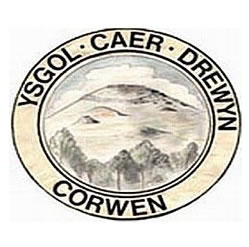
Organisation: Ysgol Caer Drewyn
Intervention: Catch Up® Literacy
Submitted by: Emma Vaughan-Evans
Background
Ysgol Caer Drewyn is situated in the Clawdd Poncen area of the small rural town of Corwen. The vast majority of pupils come from the immediate vicinity of the school and the surrounding area.
Presently, there are 85 pupils on roll, which includes 9 part-time nursery; the school also has 7 rising three children accessing the foundation phase. The pupils are organised into four mixed ability and mixed ages classes and are taught by four full-time teachers; 2 Junior classes and 2 foundation phase classes.
English is the language spoken at home, the school teaches Welsh second language programmes of study. There are 5% of children who have English as an additional language (EAL). Around a third of pupils (28%) are identified as having Additional Learning needs (ALN), which is substantially higher than the national average.
Implementation
Catch Up® Literacy is now well established in our school. We have a Catch Up® Coordinator, several staff trained to deliver Catch Up® and a designated area for Catch Up® resources. Students are identified with support from County using their May NFER reading tests results.
Parents are invited to school’s Catch Up® information evening, where the aims of Catch Up® are shared, including sessions run with staff, access to digital games, and how Catch Up® can be supported at home. The parents are then given a pamphlet which was designed in school; it sets out how a Catch Up® session is run.
The Head teacher identifies staff to be trained in the intervention programme based on performance management reviews and individual strengths and interests. The Catch Up® Coordinator then oversees the Catch Up® delivery within school, ensuring booklets are monitored termly and staff are observed annually. She tracks the children who have received the intervention and successes are discussed with class teachers and parents in parents’ evening. The Head teacher is kept well informed throughout the year, as are Governors, on the specific results. Staff are updated in staff meetings on progress of all pupils on the intervention programme.
Case Study 1 - Catch Up® Literacy
Child A is the youngest sibling, having 4 older brothers. She received 43 Catch Up® sessions during her eight months on the Catch Up® Literacy support programme and progressed through five levels. Pupil A made 17 months gain, having made a ratio gain of 2.1.
Child A receives Free School Meals and her attendance at school is an average of 90.8%. She has little support at home with her reading and homework.
During Catch Up®, she was identified as having made significant progress in her decoding and blending skills as well as comprehension and spelling skills. The class teacher identified an immense impact on her confidence and attitude and motivation towards reading in class. In fact, she progressed from a Level 1 teacher assessment in oracy and Level 2 in reading and writing to a predicted Level 4 outcome at the end of Key Stage 2. At the end of the year, she gained level 4 in all areas.
In asking Child A what she thought of Catch Up®, she stated, “I like spending time reading by myself to the teacher. I don’t always get a chance to read to Mum by myself at home”.
Case Study 2 - Catch Up® Literacy
Child B joined our school in reception and is Polish, spending most of her holidays in her native country. Her mother speaks only Polish, and her father can speak English but lacks confidence in the written word. Child B’s family are supportive and help her with her reading. As part of the Catch Up® programme, Child B has access to the digital games in school, as she has no computer in the home.
During her time on the programme, she received 37 Catch Up® sessions and made 29 months gain in her reading age, equating to a ratio gain of 3.6. She is predicted a Level 4 overall for English at the end of Key Stage 2. She was identified as having made significant progress in the areas of decoding, blending, comprehension, spelling, handwriting, confidence and attitude and motivation to reading. She had made some progress in expression and fluency and pace. She progressed through 5 Catch Up® levels during her period of receiving Catch Up®.
When asked about her time on Catch Up®, Child B stated, “It helped me to spell new words. It helped me to learn to read hard words”.
Case Study 3 - Catch Up® Literacy
Child C is one of five children. He made 22 months gain, progressing through 7 Catch Up® levels, having received 49 Catch Up® sessions. This equates to a ratio gain of 2.7. He made significant progress in his comprehension, decoding and blending skills, expression, fluency, pace, spelling and immense progress in his confidence, motivation and attitude towards reading. He is now an avid reader and is confident in reading in front of an audience. In addition, he is a valued road safety officer and school library monitor. His reading age is now significantly higher than his chronological age.
He has supportive parents who listen to him read at home and who attended school’s Catch Up® parents’ evening. His attendance at school is 98.9%.
Child C took part in the trial run by the school of the Catch Up® digital games, and currently accesses digital games online during the school day too. Child C is forecast to attain level 4 overall for English at the end of Key Stage 2. When asked about his time on Catch Up®, Pupil C stated, “I liked seeing my reading get better and the feelings I had when I saw how good I was getting”.
Aims
Within a caring and disciplined framework, the school endeavours to provide a balanced education in the fullest sense and to encourage pupils to develop their individual personalities, interests and potential to the full.